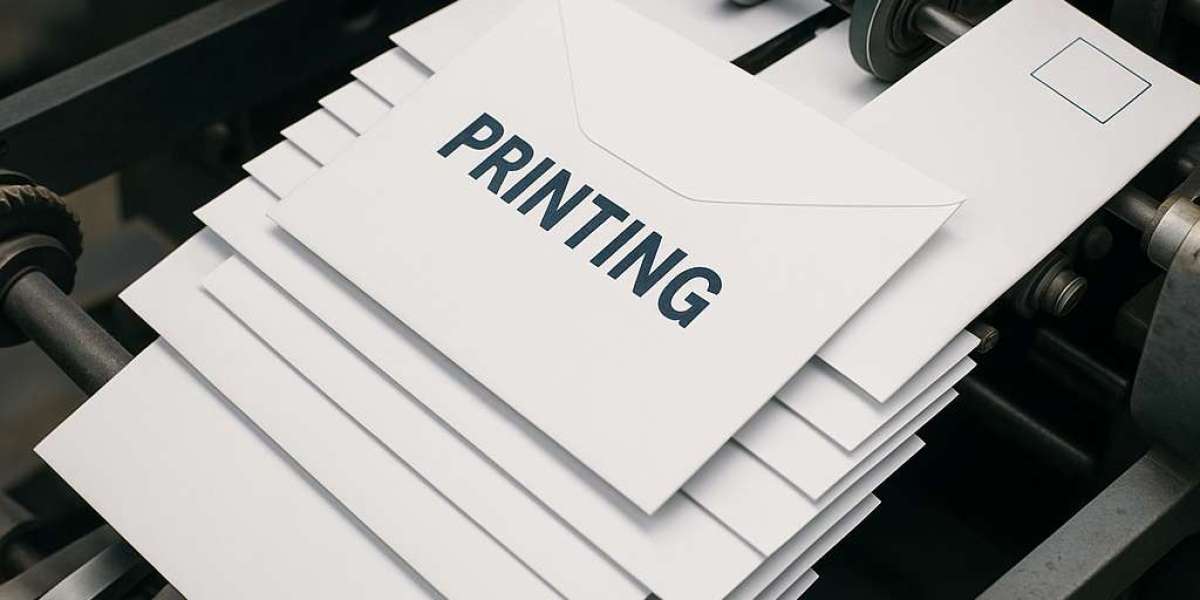Envelopes printing plays a crucial role in personal and professional correspondence, offering a blend of branding, functionality, and presentation. Whether you're running a business, organizing a wedding, or simply seeking a more polished look for your mailing needs, custom-printed envelopes can help create a memorable impression. In this guide, we will explore everything you need to know about envelope printing—from types and materials to design tips and benefits.
What is Envelope Printing?
Envelope printing is the process of customizing envelopes by adding printed elements such as company logos, return addresses, recipient information, branding colors, or decorative graphics. This can be done using various printing technologies, including digital, offset, and screen printing.
Printed envelopes are widely used by:
Businesses for branding, marketing campaigns, and official correspondence
Event planners for wedding invitations or corporate events
Individuals for personal letters, greeting cards, or announcements
Types of Envelopes
There are several types of envelopes that can be printed based on size, shape, and function:
Commercial Envelopes – Ideal for standard business communication (e.g., #10 size for letters).
Booklet Envelopes – Used for mailing booklets or brochures; open on the longer side.
Catalog Envelopes – Larger and sturdier; open on the short side and suitable for thicker contents.
A-Series Envelopes (A2, A6, A7) – Popular for invitations, greeting cards, and announcements.
Window Envelopes – Feature a transparent window to display recipient details printed on the inner content.
Self-Seal or Peel & Seal Envelopes – Offer convenience for bulk mailing.
Security Envelopes – Include a printed inner lining to obscure content.
Envelope Printing Techniques
Digital Printing
Suitable for small runs
Quick turnaround
Cost-effective for short-term campaigns
Offset Printing
Best for large volumes
High-quality color accuracy
Economical for mass distribution
Flexographic Printing
Commonly used for large batches of basic designs
Fast and cost-efficient
Screen Printing
Great for bold colors and thick inks
Often used on specialty envelopes
Design Elements for Printed Envelopes
When designing an envelope, consider the following:
Logo Placement – Top left corner or centered on the flap
Font Style – Use clean, legible fonts for addresses and branding
Color Scheme – Align with your brand colors or event theme
Imagery or Graphics – Subtle designs can enhance visual appeal
Return Address – Optional but adds professionalism
Postage Area – Leave space for stamps or metering
Window Alignment – If using window envelopes, ensure content inside is perfectly aligned
Design templates from printing companies can help avoid issues with bleed, margins, and layout.
Benefits of Custom Envelope Printing
Professional Appearance
A printed envelope lends credibility and shows attention to detail.
Brand Recognition
Every mailed item becomes a branding opportunity.
Improved Open Rates
Eye-catching envelopes can increase curiosity and lead to higher engagement in direct mail marketing.
Enhanced Security
Custom designs reduce the risk of forgery and tampering.
Convenience
Pre-printed return addresses save time for mass mailers.
Industries That Rely on Envelope Printing
Real Estate – Sending brochures and property info
Finance – Statements, checks, and official correspondence
Education – Admission letters, report cards, and newsletters
Healthcare – Appointment reminders and medical records
Retail – Coupons, special offers, and promotional content
Eco-Friendly Envelope Printing
As sustainability becomes a priority, many printers now offer:
Recycled paper options
Soy or vegetable-based inks
Biodegradable adhesives
Choosing an environmentally conscious printer not only helps the planet but also enhances your brand's reputation.
Ordering Printed Envelopes: What to Know
When placing an order, consider:
Quantity – Many printers offer discounts on bulk orders.
Size – Choose based on the content you’re mailing.
Paper Type – Glossy, matte, textured, or eco-friendly options.
Printing Sides – One-sided (usually front) or two-sided.
Lead Time – Factor in design approval and shipping.
Online printing companies often provide instant quotes, proofing tools, and design services for added convenience.
Conclusion
Envelope printing is a small yet powerful element in your communication strategy. Whether you're looking to reinforce your brand image, increase mail engagement, or simply present your message with more professionalism, printed envelopes deliver value and impact. From businesses sending invoices to brides mailing elegant invitations, the right envelope sets the tone before it's even opened.







